Lucy O’Sullivan tackles some of the most common issues on the shooting line
The British outdoor circuit for target archers tends to run from March to October, weather permitting, with the main events taking place in the height of summer. I have been chasing the circuit for as long as I can remember – apart from the Covid years – and every year I suffered from burnout, and went through all the highs and lows of the different shoots. Here are some of the most common problems you might face as a competitive archer.
One of the most common problems outdoors are the physical symptoms of allergies. “Stay indoors” is the advice for hayfever sufferers, but that is not possible for an outdoor sport. Instead, I suggest washing your hands and face as often as you can, use antiseptic gels for your hands, or spray water on your face if you can’t get running water.
Try to get as much sleep as possible before and after the shoot to help your immune system recover. I find getting the dirt and pollen off you as quickly as possible works best. Go indoors as soon as the shoot is finished, shower before eating, and then go straight to bed if you can.
A strategy that many employ is exposure therapy from the spring onwards – starting with five minutes outdoors as a walk, and building it up to a whole day by the time the shooting season is on. Outdoor activity will also reduce stress and stimulate your happy hormones, helping the immune system at the same time.
Lots of vegetables and antioxidant foods will help too – try adding in things like fresh ginger and a slice of lemon in your water, or you could try sprinkling turmeric (an anti-inflammatory) on your food. It takes a little more preparation before the shoot, but it will help.
Don’t forget to clean your technology often – your phone and any scoring devices – so take wet wipes with you. Also, don’t forget to bring soft tissues, the more the better, as you don’t want to have the anxiety of running out of paper. It’s a good idea to speak to a doctor about which tablet or treatment is best for you, start treatment well in advance of any competition as some hayfever medicines take effect after a few days rather then offering instant relief.
Sore muscles are common in competitive archers. If you are suffering with Delayed Onset of Muscle Soreness (DOMS), try to do an extra thorough warm-up. Start as gently as you can, and take extra time on the warm-up to gradually get some good fresh blood into the muscles. You can follow my YouTube channel @osullivanarchery (search for archery warm-up) to find what is best for you on the day, as every event is different and you must listen to your body and what it needs. Do not go ‘cold’ into a full day of shooting.
To limit upper body soreness during the season I tend to only do lower body exercises and rehab or prehab-type exercises in the gym on the week of the shoot. I don’t overdo it in the gym either, as lifting a heavy deadlift or squat can actually fatigue your central nervous system, so go light, use the week as an opportunity to do the rehab and other body parts you tend to miss in the off-season.
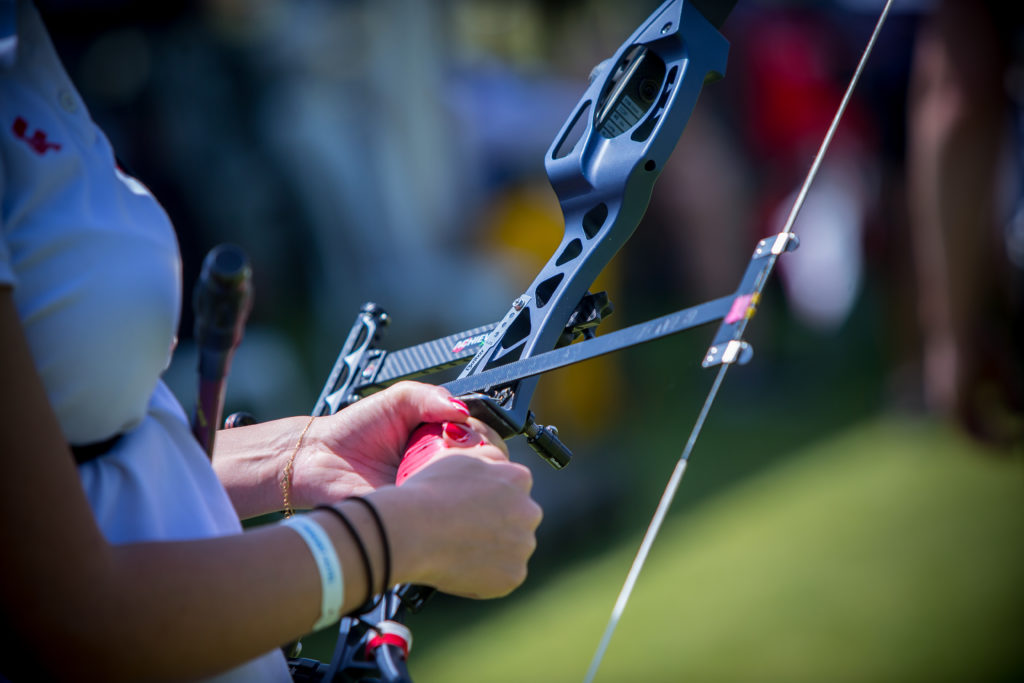
I wouldn’t encourage shooting hundreds of arrows before a shoot either. If you are not used to it, shoot your normal amount, shoot beautiful shots and be ready for the competition rather then tired before it. Build up in the off-season or in long breaks if you want to shoot more shots. You wouldn’t do a 100kg squat on your first day in the gym, so don’t do it with your shooting either!
If you follow me on Instagram you will know I’m a headache sufferer. It sucks and I see a doctor about them. You should too if you suffer, to rule out anything scary. I tend to get stress headaches, weirdly, from jaw clenching. I’m lucky that I now get hospital treatment of botox in the masseter muscle, but after a few weeks it wears off.
At the British Target Championships I had a dull headache all day and I didn’t particularly want to drink lots of water because of the limited toilet situation. If that’s the case it is important to ask for help from your target companions.
When I drank lots, my target mates would walk slower after collecting arrows, giving me time to get to the facilities. Archers are invariably kind people – tell them how you are feeling and they can help. Obviously talk to a doctor before you take any medicines, but I take the standard pain relief, and find massaging my temples and jaw with essential oils helps. Tiger balm, for me, is also a godsend on the forehead.
With water, drink little and often all day. I need a caffeine fix, so iced coffees are good on the field, as with some shoots the cafe is a little too far away, and the queue too long to get a coffee in time.
Another common issue can be fatigue. You may feel fine mid-week but by the time you get to a shoot you are exhausted from: travel; young kids at home keeping you awake; the dog waking you up in the night; not sleeping due to work stress; any number of reasons.
How are you supposed to get a personal best on a day when you just need to go back to bed? A good idea may be to ‘hype up’; listen to some loud music to get your heart rate going and your mind more active before shooting.
Try not to rely on too much caffeine as you can have an adverse reaction to it, so I suggest more movement. Get in a great warm-up, while listening to music – your body will tell you what it needs most, but try and work the big muscles first to get the blood pumping.
I personally recommend napping, I used to nap all the time at shoots between head to heads, and regret not doing it at the latest shoots. For a lot of people, it is a skill that has to be practiced. Set an alarm for five minutes and try to sleep and wake up in that time.
You will feel groggy at the beginning of sleep training but with practice five minutes can become a life saving nap. With general sleep, sleep as much as you can on the days leading up to, and post the event if you do feel fatigued. Try to get the recommended minimum of seven hours a night as this will help performance massively.
Adverse weather affects us all at shoots whether it be hot, cold, or windy days. Just remember that everyone else is in the same conditions, so do not give up – sometimes the winner is the person who just didn’t give up. Mentally know you are amazingly strong and if you can get through one of those days you can get through anything!
You can prepare better for those days too. On hot days make sure you have cool packs, water spray, towels to dunk in water, lots of spare drinks and more fruit snacks for the day. On cold days take electric rechargeable hand warmers, wear more layers that you have practiced shooting in and get clearance in, and have foods such as porridge that only need hot water to keep you warm. On windy days do a really good warm-up for the shoulders as they are going to take a beating – stretch often and just don’t give up.
Another issue that affects us all is mental health. Personal problems that can be different throughout the year, based on family, work, life or indeed anything. Perhaps you are dealing with a crisis at home, or your kid is sick while you’re at a shoot, you may have a big bill to pay, or you are grieving.
Whatever it is, I hope these next few tips can help. Remember that if you started archery as a sport, to take some pressure off your main life and for fun. Do not let it be ruined by adding extra pressure on yourself during a competition, especially on those mentally challenging days. Remember why you started the sport. Competitions are supposed to be for fun!
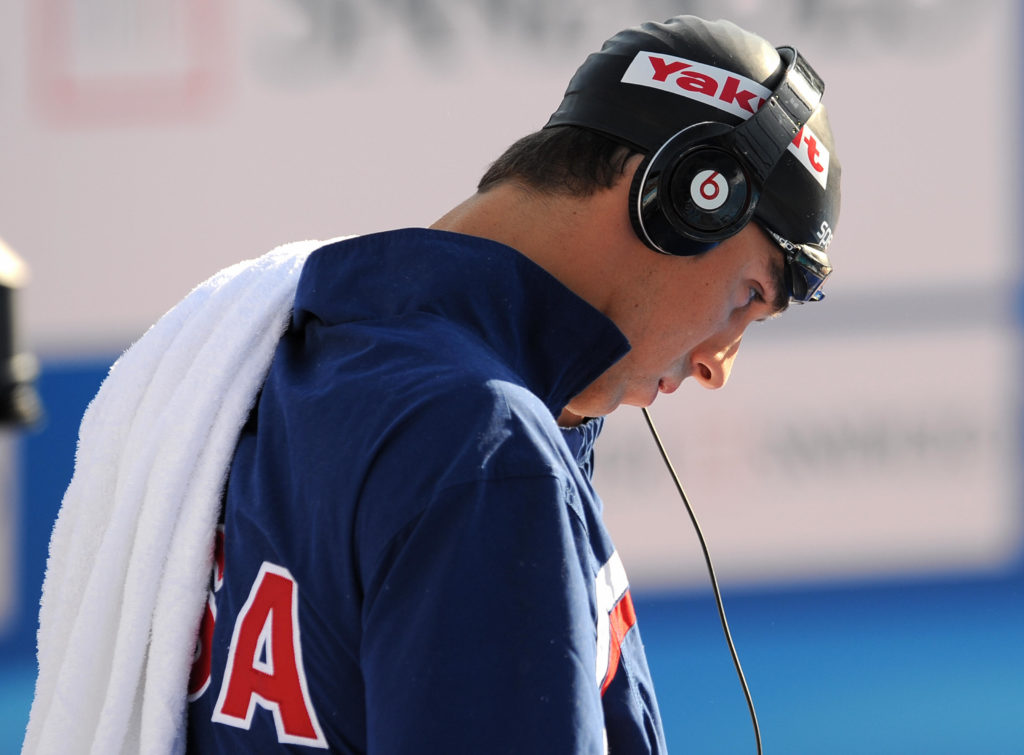
In my case I try to do archery as a meditative thing: breathing in; pulling back the bow, letting out a bit of breath; aiming and letting go; releasing all of the breath; it’s the same every time and can be quite cathartic. Let archery be that for you on those difficult days. Be proud of yourself for showing up and shooting – just focus on the target to help you get some head space.
If you need even more help, there are great apps such as Calm that offer breathing meditations and relaxation techniques. And of course, if you are the type of person that needs to be pumped up to deal with certain situations, listen to some banging tunes that get your heart rate going, and focus that energy into your shot.
Women and archery
One of my main concerns is women’s health. In Jersey, where I live, I try and help local charities every year by putting my face and name to a cause. This year, it was women’s health checks.
Women’s checks are an extra, and stem from my life experiences. I don’t think many people will be aware that when you are a young woman competing at that time of the month, it really sucks. One of the endemic problems in archery is that often there are no toilet facilities, or enough toilet paper available.
An incredibly common situation is toilets situated a quarter of a mile from the shooting line – a common complaint in both British and American tournaments. I’m just thankful that we fought and won it so that young women don’t have to wear white anymore – because back in the day, we did!
So how do you deal with a situation where there are only two portable toilets for over 300 people, not much toilet paper, cramps, hot weather, and you are still expected to shoot a personal best?
Firstly, just don’t quit – hopefully you have a good support network around you, and of course your target companions are part of that. They can help you to laugh all day and get you through it. Of course, I would say always take spare toilet roll to these events now, and anything that will help you feel more human – just something to help you feel more confident. This might be perfume or makeup, or something else entirely.
Make sure you are eating good whole foods, some omega rich foods will help, and of course you can have a little bit of chocolate too, but not too much as sugar is likely to adversely affect performance. Drink water often throughout the day as you will be more dehydrated than normal. I know it’s annoying as there may not be toilets near by, but again ask your target companions to walk slower back to the shooting line or collect your arrows. They will understand.
I’m hoping that some of these tips and tricks that I have learnt will help you avoid the bad day shoots, or suffering from burnout at the end of the season. The one rule is to never give up, you are stronger than you think you are physically and emotionally. Go and get it!


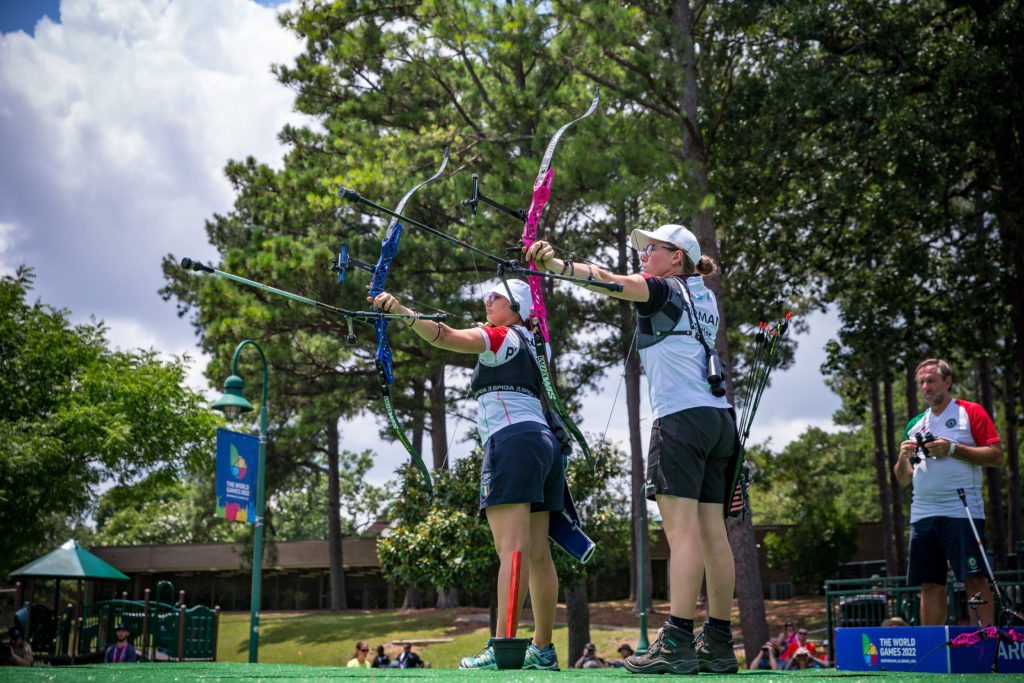
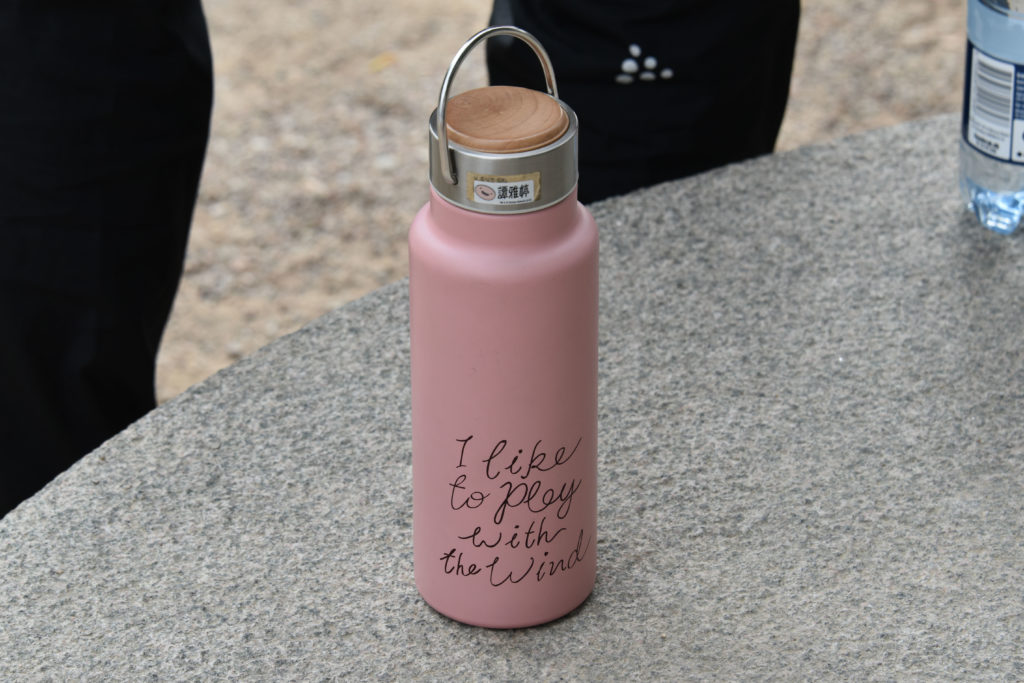
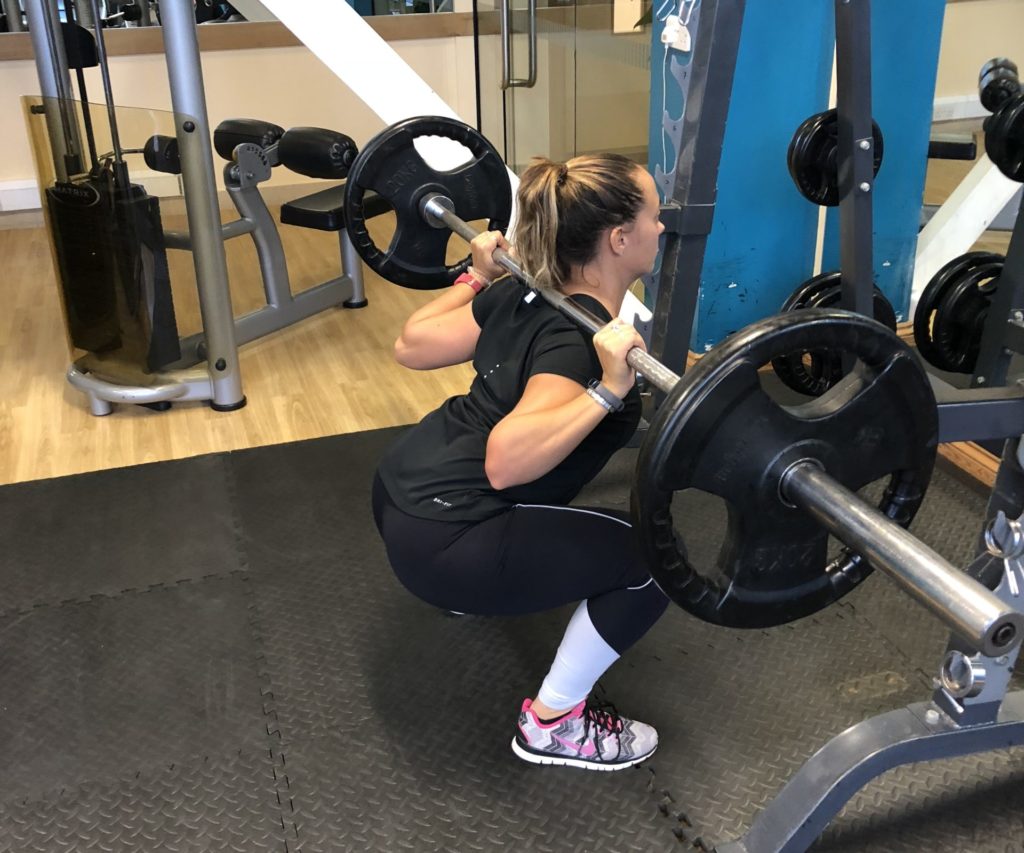
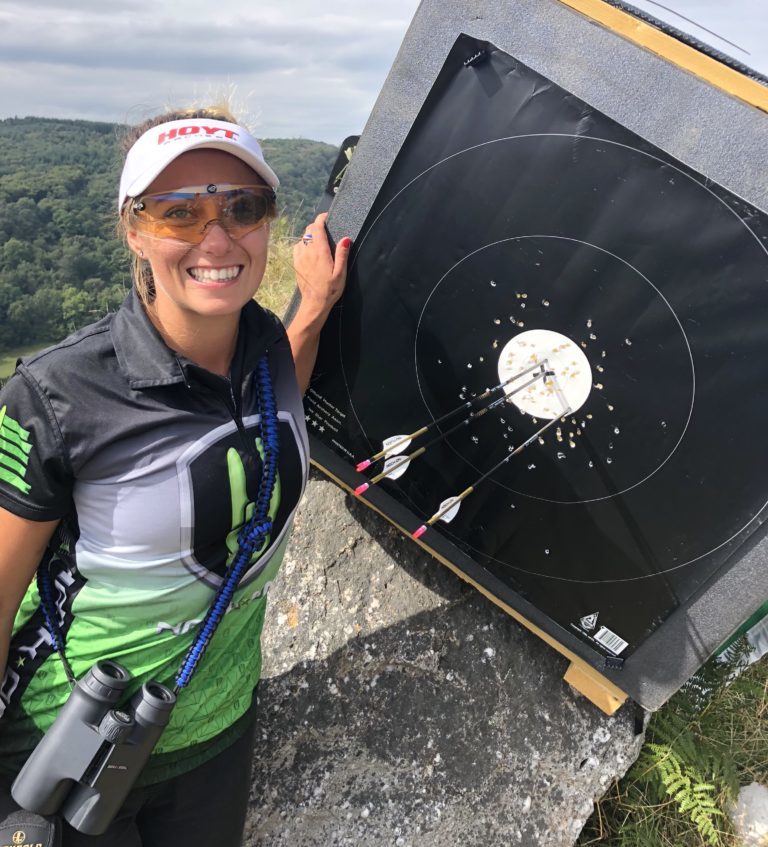
Excellent article thanks Lucy – sound advice as always. The section on avoiding DOMS was useful and I have reccommended your you tube info to some of my archers and coaches.